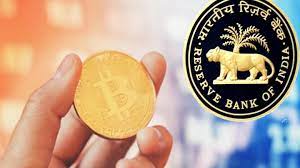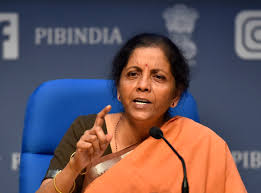Central Bank Digital Currency (CBDC) is a digital form of currency notes issued by a central bank. While most central banks across the globe are exploring the issuance of CBDC, the key motivations for its issuance are specific to each country’s unique requirements.
Concept Note has been issued by RBI which explains the objectives, choices, benefits and risks of issuing a CBDC in India, referred to as e₹ (digital Rupee). The e₹ will provide an additional option to the currently available forms of money. It is substantially not different from banknotes, but being digital it is likely to be easier, faster and cheaper. It also has all the transactional benefits of other forms of digital money.
The purpose behind the issue of the Concept Note is to create awareness about CBDCs in general and the planned features of the digital Rupee, in particular. The Note also seeks to explain Reserve Bank’s approach towards introduction of the digital Rupee. Reserve Bank’s approach is governed by two basic considerations – to create a digital Rupee that is as close as possible to a paper currency and to manage the process of introducing digital Rupee in a seamless manner.
The Concept Note also discusses key considerations such as technology and design choices, possible uses of digital rupee, issuance mechanisms etc. It examines the implications of introduction of CBDC on the banking system, monetary policy, financial stability, and analyses privacy issues.
The Reserve Bank will soon commence limited pilot launches of e₹ for specific use cases. It is expected that this note would facilitate a deeper appreciation and understanding of digital Rupee and help members of public prepare for its use.
RBIs digital currency : 10 things you should know*
What is e-rupee (digital rupee)?
E-rupee or digital rupee is a digital version of the Indian rupee that the RBI is exploring. The RBI has proposed to issue two versions – wholesale for interbank settlement and retail for the public. According to the indirect model proposed by the RBI, you will hold the digital rupee in a wallet with a bank or service provider.
Is it a cryptocurrency?
The underlying technology of cryptocurrency (distributed ledger) can underpin parts of the digital rupee system, but the RBI has not decided on this, yet. However cryptocurrencies like bitcoin or ethereum that are ‘private’ in nature. Digital rupee on the other hand, will be issued and controlled by the RBI.
Can you mine it?
No. RBI will issue it. It cannot be mined like bitcoin. This means that the environmental and energy use concerns associated with bitcoin are unlikely to be afflict the digital rupee.
Who will issue it?
RBI has proposed a model where it (the RBI) issues the e-rupee but commercial banks distribute it.
How do you transfer e-rupee?
The retail version of the digital rupee is token based. Broadly this means, you find out the recipient’s public key (think of it like an email address) and transfer money to them using your private key (essentially, a password).
Will it earn interest?
According to the RBI concept note, no. They are not in favour of e-rupee with interest. Why? Because people might withdraw money from banks and convert it to digital rupee – causing banks to fail
Will it be anonymous?
A bank transfer goes from an identified person to another. A cash transfer on the other hand is anonymous – you don’t know who all held that particular rupee note in the past. For e-rupee, the RBI concept note has proposed partial anonymity where small amounts can be anonymous but not large amounts.
Why should you hold it?
Convenience. Transacting in e-rupee can take away the inconvenience of carrying around physical notes and coins. Apart from this, the RBI has outlined some benefits for the country as a whole, such as financial inclusion, innovation and lowering the costs of cash transactions.
Can it be programmed?
Yes, possibly. It can be programmed to achieve purposes like ensuring it is only spent for a particular sector (say, agriculture). Alternatively, it can be given a limited life, like a voucher, allowing RBI to stimulate demand when needed and withdraw it when not needed. These features come with trade-offs and hence RBI has not finalised on them yet.
What if your net is down?
The RBI has proposed offline functionality for the digital rupee – meaning you can transact without the internet. However this can cause duplication where the same rupee transferred to multiple people. The RBI may issue limits for offline transactions to reduce such synchronisation issues or look for some technological solution to them.
READ / DOWNLOAD RBI CONCEPT PAPER CLICK HERE
*Source: livemint.com
*****
Don’t miss the next Tax Update / Article / Judicial pronouncement
Subscribe to our newsletter for FREE to stay updated on GST Law
Resolve your GST queries from national level experts on GST free of cost
Frah Saeed is a law graduate specializing in the core field of indirect taxes and is the Co-founder of taxwallah.com. She has authored many publications on GST and is into full-time consultancy on GST to big corporates. She as a part of taxwallah.com heads a team comprising of Chartered Accountants and Advocates and plays a key role in our mission to disseminate GST knowledge to all.




